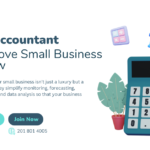Knowing the ups and downs of tax forms is essential for bookkeeping and accounting. The 1099 series is one collection of forms that is important to financial management. We will examine the many sorts of 1099 tax forms and provide professional advice on how to handle them in-depth.
What Are 1099 Tax Forms Used For?
Before diving into the specifics, let us understand the main objective of 1099 tax forms. These forms are used to report several kinds of revenue that people and organizations receive in addition to their usual salaries, tips, and wages. They are necessary for monitoring income that might not be liable to regular payroll deductions.
A Detailed Breakdown of the Different Types of 1099 Tax Forms:
- 1099-MISC: This form, which is probably the most well-known, details earnings from non-employees such as independent contractors, freelancers, and suppliers. Companies that receive payments totaling $600 or more in a tax year are required to submit 1099-MISC forms.
- 1099-INT: Banks frequently produce 1099-INT forms, which are used to report interest income for interest earned on savings accounts, certificates of deposit, and other interest-bearing accounts.
- 1099-DIV: Investors are familiar with this form, as it reports dividends received during the tax year. Mutual funds, stocks, and other investments generating dividends necessitate the issuance of 1099-DIV.
- 1099-G: This form reports government payments, such as unemployment compensation, state and local tax refunds, or certain credits. Individuals receiving these payments must report them on their tax returns.
- 1099-R: Issued for distributions from pensions, annuities, retirement plans, or profit-sharing plans, 1099-R is essential for retirees and those who have withdrawn funds from these accounts.
- 1099-K: Commonly associated with the gig economy, the 1099-K reports income received from online platforms, such as ride-sharing or accommodation-sharing services. It ensures transparency in reporting income generated through digital transactions.
- 1099-C: Debt forgiveness or cancellation results in taxable income, and 1099-C is the form used to report this canceled debt. Individuals receiving a canceled debt of $600 or more must include it in their income tax return.
Tips on Managing 1099 Forms:
- Stay Organized: Implement a robust record-keeping system to track payments made to vendors, contractors, or individuals throughout the year.
- Request W-9 Forms: Before making payments to vendors or contractors, request a completed Form W-9. This form provides the necessary information, including the taxpayer identification number, essential for accurate 1099 reporting.
- Use Accounting Software: Leverage accounting software to streamline the process of generating and filing 1099 forms. Many modern accounting tools offer features specifically designed to manage 1099 reporting efficiently.
- Understand Filing Deadlines: Be aware of the deadlines for furnishing 1099 forms to recipients and filing them with the IRS. Failure to comply with these deadlines may result in penalties.
The Specialty of Ceptrum: Providing a Client Portal:
Navigating the landscape of tax forms, including 1099s, can be challenging. This is where outsourced accounting services, such as those offered by Ceptrum, come into play. One standout feature is the client portal, a secure online platform facilitating seamless communication and collaboration between clients and accounting professionals.
The client portal enhances transparency by allowing real-time access to financial reports, tax documents, and other critical information. This digital collaboration not only streamlines the exchange of information but also ensures the security and accuracy of financial data.
Outsourced Accounting Services and 1099s: A Winning Combination:
Outsourcing accounting services can be a game-changer for businesses navigating the complexities of tax reporting. Professionals well-versed in tax regulations and accounting best practices can ensure accurate 1099 reporting, minimizing the risk of errors and penalties.
Beyond 1099s, outsourced accounting services provide a comprehensive approach to financial management, offering expertise in areas such as bookkeeping, financial analysis, and strategic planning. This strategic partnership allows businesses to focus on their core activities while maintaining confidence in their financial compliance.
Conclusion:
Understanding the several categories of 1099 tax papers is vital for those engaged in bookkeeping and accounting. Due to their complexity, these forms need organization, diligence, and, frequently, professional knowledge. In addition to offering a plethora of knowledge, outsourced accounting services like Ceptrum also make use of technology, such as client portals, to streamline and improve the entire financial management process.
It becomes a calculated decision for organizations to embrace the complex requirements of 1099 reporting as they work toward financial compliance and accuracy. Businesses can confidently and effectively negotiate the complex world of tax forms if they have the appropriate information, resources, and alliances.
Read More:
What is 1099 form and How can small businesses issue this?







